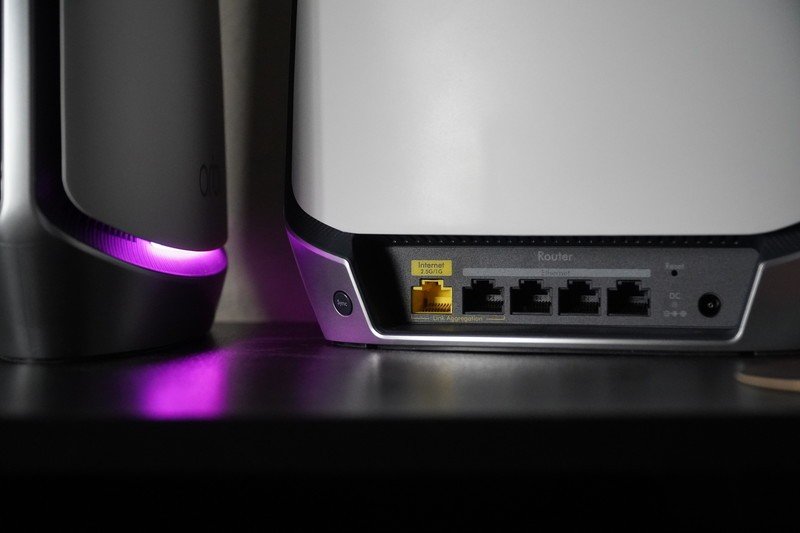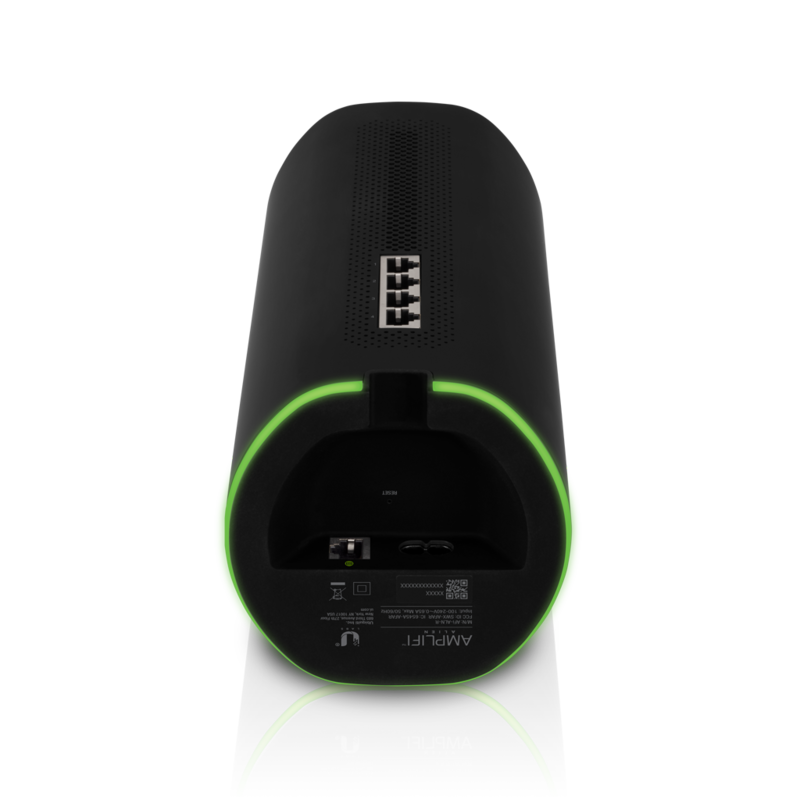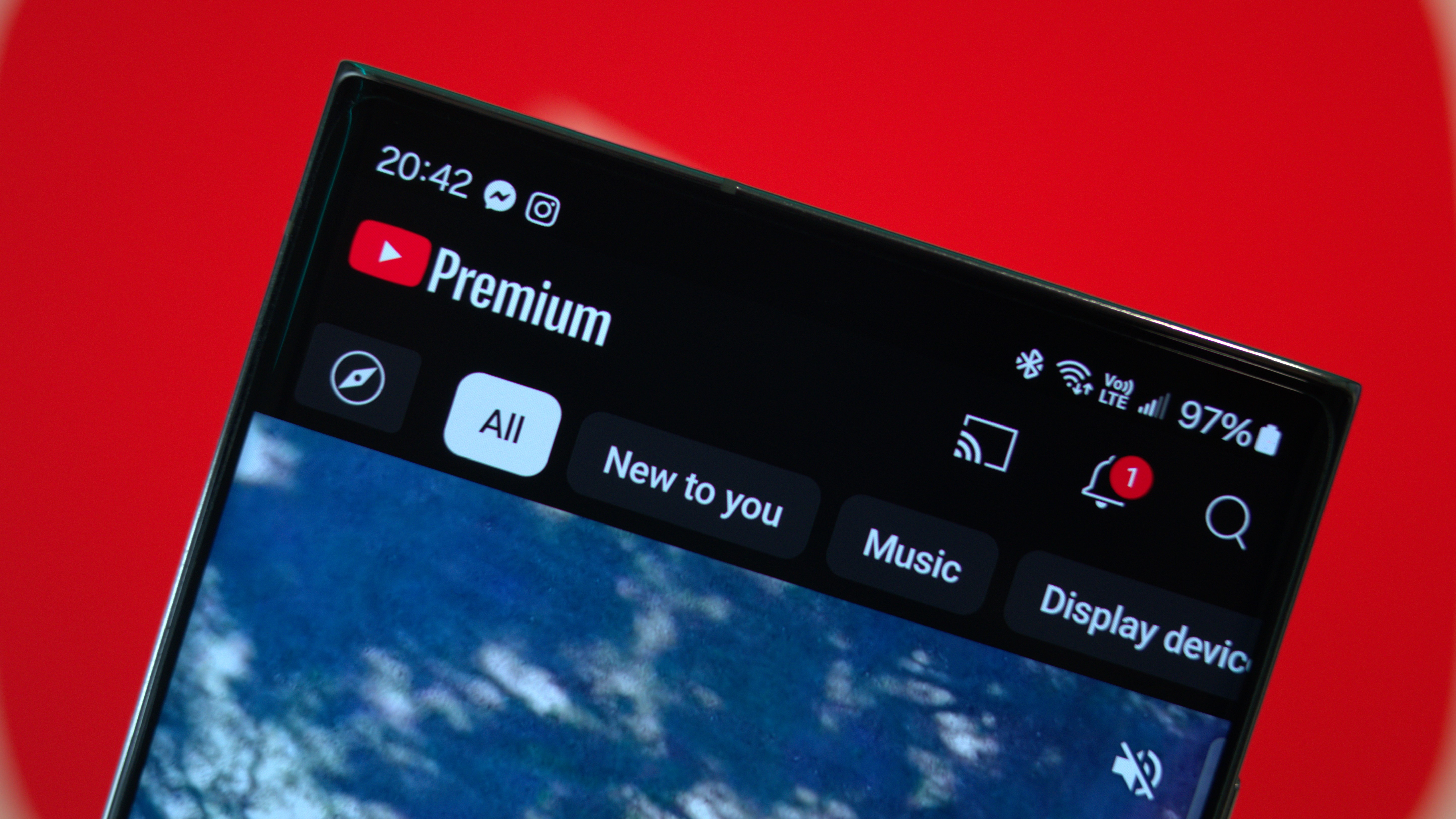Ubiquiti AmpliFi Alien vs. Netgear Orbi 6: Which Wi-Fi 6 router should you buy?

Ubiquiti AmpliFi Alien
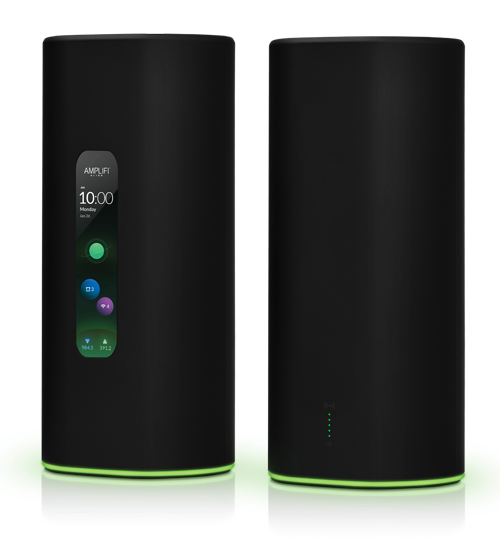
In terms of raw speed and performance, the Ubiquiti AmpliFi Alien exceeds the Orbi WiFi 6 in device bandwidth. The Alien also sports an attractive design with a nice display on the front of the main router with network statistics. The AmpliFi Teleport app also makes secure browsing on a public connection a breeze.
Ubiquiti AmpliFi Alien
Reasons to buy
Reasons to avoid
Netgear Orbi WiFi 6 (RBK852)
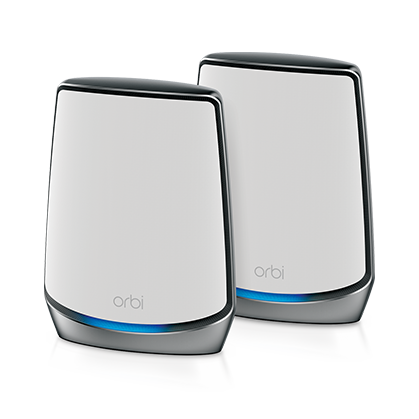
A dedicated 5GHz 2400Mbps band for connecting to other routers will help the Orbi WiFi 6 stay fast with demanding connections on any of the nodes. Access your gigabit connection all over the house including wired devices thanks to four LAN ports on both the router and the node.
Netgear Orbi WiFi 6 (RBK852)
Reasons to buy
Reasons to avoid
In many ways, the Netgear Orbi AX6000 system isn't as impressive as the AmpliFi Alien but its thoughtful design makes it a more sensible choice for many setups. With a 2.5Gbps WAN port and a ton of Ethernet ports to choose from, Netgear's solution should provide a consistently fast connection for wireless and wired devices and it should easily fit into an existing multi-gig wired network.
The Ubiquiti AmpliFi Alien is an extremely capable mesh system with more raw speed than most other Wi-Fi 6 mesh systems. It also has some great features to back it up, including AmpliFi Teleport and an innovative antenna design, which enables a huge coverage footprint. A color touch screen on the main router is a nice touch as well.
Ubiquiti AmpliFi Alien vs. Netgear Orbi 6 Dedicated Wi-Fi Link
Both the AmpliFi Alien and Orbi WiFi 6 have two 5GHz bands for Wi-Fi 6 connectivity but the Orbi dedicates more speed to the mesh connection at 2400Mbps compared to 1733Mbps on the Alien. The result is that neither of these routers will deliver their max speed ratings to devices but with multiple gigabits per second available to devices on either system, it shouldn't be a huge deal.
| Header Cell - Column 0 | Ubiquiti AmpliFi Alien | Netgear Orbi WiFi 6 (RBK852) |
|---|---|---|
| Total combined speed | 7685Mbps | 6000Mbps |
| Wi-Fi standard | Wi-Fi 6 (802.11ax) | Wi-Fi 6 (802.11ax) |
| LAN Ethernet on base | 4 ports | 4 ports |
| LAN Ethernet on node | 1 ports | 4 ports |
| Setup | App or web | App or web |
| Dimension | 4.5x4.5x9.6 inches | 10x2.8x7.5 inches |
| WAN speed | 1Gbps | 2.5Gbps |
Both of these mesh systems are very high-end for consumers. The Wi-Fi speeds are more than most people will need but can be a great benefit to someone that works from home or utilizes cloud services for backup. The Orbi is a bit more suited to a fast home network thanks to being able to handle a 2.5Gbps incoming connection.
Ubiquiti AmpliFi Alien vs. Netgear Orbi 6 AmpliFi gets more speed to devices
The fact is that the AmpliFi Alien has faster wireless capabilities and will be able to support more and faster Wi-Fi 6 devices overall. The Alien's WI-Fi speeds break down to 1,148Mbps at 2.4GHz and 4,804Mbps at 5GHz available to devices. Another 5GHz band connects the mesh nodes at 1,733Mbps. One outstanding concern with the Alien is that the transfer speed from wired devices or an internet connection will always be limited to 1Gbps due to its WAN port and a lack of link aggregation.
Get the latest news from Android Central, your trusted companion in the world of Android
For most people, 1Gbps is plenty and the headroom in the wireless connection is good to have for multiple devices, but it's worth remembering that your internet connection speed will be limited by this port.
The Orbi has a 2.5Gbps WAN port, meaning that it can support a connection to a larger network at that speed. This will be important for someone that is using the Orbi as part of an existing wired network over 1Gbps. With more affordable superfast Ethernet devices becoming available all the time, such as the new Mac Mini with its 10Gbps Ethernet option, this is becoming increasingly likely for high-end enthusiast home networks. Still, this upgrade won't matter to most people for several more years.
This Orbi has three wireless bands with a 2.4GHz band capable of 1200Mbps and a 5GHz band at 2400Mbps for connected devices. Another 5GHz band connects mesh nodes at 2400Mbps.
Ubiquiti AmpliFi Alien vs. Netgear Orbi 6 Cover more of your home with AmpliFi
The Ubiquiti AmpliFi Alien system has a significantly greater coverage area than the Orbi system. AmpliFi states that the Alien has double the 10,000 square feet of coverage offered by the older AmpliFi HD router. This huge coverage means that nearly any home should be able to expect great speeds from the system with few connection drops even in a very large home. For a lot of people in smaller homes or apartments, a single Alien router will likely be enough.
The Netgear Orbi W-Fi 6 has approximately 5,000 square feet of coverage from its two units. While this is significantly smaller than the Alien, it should still cover most homes. Mesh systems are designed to deal with interference and challenging conditions however and in a home with concrete walls or other elements that may block the signal, careful placement may still be required for both systems.
Ubiquiti AmpliFi Alien vs. Netgear Orbi 6 Easy mesh expansion
The AmpliFi Alien is only compatible with other Alien routers for its mesh. This includes the base Alien routers as well as the node that is part of the two-pack. This system is not compatible with the older AmpliFi Instant or AmpliFi HD systems. This does mean that there will be no speed compromises and the entire mesh will be linked with Wi-Fi 6.
Similarly, the Orbi WiFi 6 system is only compatible with other Orbi Wi-Fi 6 routers. If you find you need more coverage on your Orbi mesh, you will need to stick with Wi-Fi 6 satellites only.
If you were hoping to upgrade an existing Orbi or AmpliFi system with Wi-Fi 6 equipment, you're out of luck and will need to upgrade the entire system.
Ubiquiti AmpliFi Alien vs. Netgear Orbi 6 The small details
Both of these routers have a capable and easy-to-use app for setting up and managing the network. You will be able to see your connected devices as well as the speed between mesh points. The AmpliFi Alien does have a screen on the router to display basic network information at a glance which is nice to have and adds to its premium feel.
The Alien also has support for AmpliFi's Teleport app, which allows you to easily connect to your home network through a private VPN from anywhere with an internet connection. This can be a great option for someone that travels a lot and wants to be sure they are browsing securely. It can also help you connect to region-locked services such as streaming video platforms from unsupported countries.
The Orbi system works with Amazon Alexa and the Google Assistant making it easier to control usage on your network.
Ubiquiti AmpliFi Alien vs. Netgear Orbi 6 AmpliFi delivers in more areas
Netgear was one of the first companies to dive into consumer mesh networking and has built one of the largest ecosystems of compatible routers, but most of them don't work with the Wi-Fi 6 system in a time where many of the best wireless routers have Wi-Fi 6 built in. Orbi can still be great for some people thanks to it's fast WAN port but for the majority of people with 1Gbps or slower internet connection, it's not that important.
At the same price, the Ubiquiti AmpliFi Alien delivers greater Wi-Fi speeds in an attractive package. Both devices can be a great option but the Alien's balance of features and massive coverage make it the better choice for most people.

When Samuel is not writing about networking or 5G at Android Central, he spends most of his time researching computer components and obsessing over what CPU goes into the ultimate Windows 98 computer. It's the Pentium 3.
